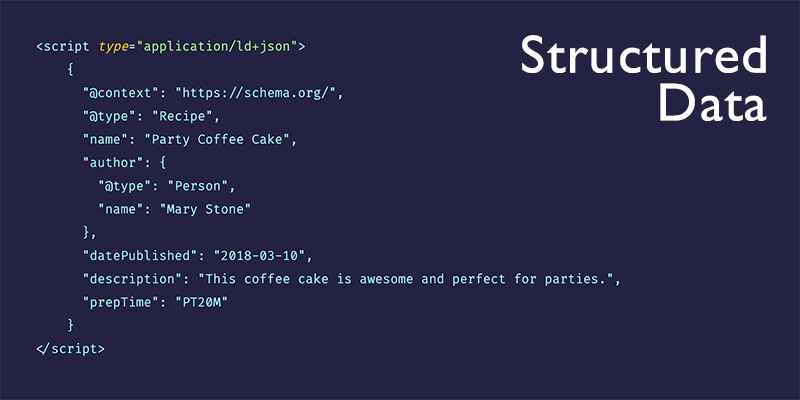If you’re looking to improve your WordPress website’s search engine visibility and user experience, it’s time to pay attention to structured data. Structured data is a crucial aspect of modern web development that can benefit your website in various ways, including higher search rankings, better user engagement, and increased click-through rates. In this blog post, we will discuss the importance of structured data for WordPress websites and explore some best practices to help you make the most of this powerful tool.
The Significance of Structured Data for WordPress Websites
- Enhance Your SEO Efforts: One of the most significant benefits of implementing structured data is improved search engine optimization (SEO). By providing search engines with well-organized and easily interpretable information, structured data can help your website rank higher in search results. This translates to better visibility, more organic traffic, and ultimately, a higher potential for conversions.
- Improve User Experience: Structured data can help you create rich snippets, which are enhanced search results that display additional information such as images, ratings, or prices. These rich snippets make your website’s search listings more appealing, informative, and engaging, thereby improving the overall user experience.
- Boost Click-Through Rates: When your website appears in search results with rich snippets, it stands out from the competition. This higher visibility not only encourages users to click on your website but also increases the likelihood of them spending more time browsing and engaging with your content.
- Future-Proof Your Website: As search engines continue to evolve and prioritize user experience, structured data will play an increasingly important role in how websites are ranked and displayed. By implementing structured data now, you’re preparing your WordPress website for the future of search and ensuring it remains competitive in the long run.
Best Practices for Implementing Structured Data on WordPress Websites
- Choose the Right Schema: Before implementing structured data, you need to identify the appropriate schema, or vocabulary, to use. Schema.org is the most widely accepted schema and is supported by major search engines like Google, Bing, and Yahoo. Depending on your website’s content, you may use various schemas such as Article, LocalBusiness, Product, or Event.
- Use Plugins for Easier Implementation: To simplify the process of adding structured data to your WordPress website, consider using plugins like Yoast SEO, All In One Schema Rich Snippets, or Schema App Structured Data. These plugins can help you generate and manage structured data without needing extensive technical knowledge.
- Test Your Structured Data: After implementing structured data, use Google’s Rich Results Test or the Structured Data Testing Tool to ensure your markup is correctly formatted and recognized by search engines. Regularly testing and updating your structured data can help you maintain your website’s search performance.
- Monitor and Analyze Your Results: Keep an eye on your website’s search performance and click-through rates to gauge the impact of your structured data efforts. Use Google Search Console to track your rich snippets and identify any issues that may require your attention.
Implementing structured data on your WordPress website is essential for boosting your search engine rankings, enhancing user experience, and increasing your click-through rates. By following best practices and staying up-to-date with the latest structured data developments, you can ensure your website remains competitive and future-proof. Don’t miss out on the benefits of structured data—start optimizing your WordPress website today!
